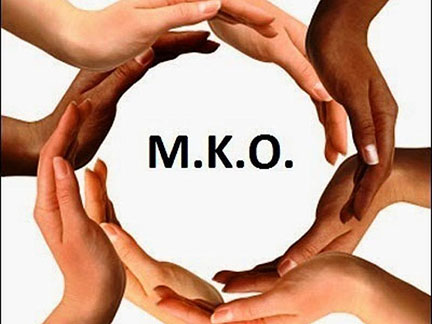The issue of Non-Governmental Organizations (NGOs) was once again mentioned in the political and social news. But, what is the definition and purpose of NGOs and why do they occupy the media so often?
The first international non-governmental organizations were established in 1839 and contributed to the abolition of slavery and the claim of the female vote. The name Non-Governmental Organization was first said in 1945 with the establishment of the United Nations Organization. Although, many definitions have been given in order to clarify the meaning of an NGO, there is no specific one to whom we could write to describe it. However, it could be said that the purpose of NGOs is the effort to confront social problems, such as medical care, education, poverty, social inequality, environmental protection, etc. at international or national level. They are part of civil society and aim to cover the weaknesses and pathogenesis of the welfare state. It should underline that that the NGO are not related with any political organization or party, and their financial budget comes from European funds, donations and sponsorships from individuals and legal entities and can sometimes be funded by the state for a social program they wish to implement. Due to the European and state subsidies they receive, there is an intense discussion and criticism about the work of NGOs.
The management of public money is a major political and social issue. And rightly is. The squandering and corruption, which is often associated with it, is now the Greek reality and not a scandal, where we suddenly discovered the true dimension of things. The state subsidies with exorbitant amounts in NGOs. is not a recent phenomenon. In the past there have been similar phenomena whether they had the same news coverage or not. I will not disagree with the fact that there are many NGOs, which do not contribute to any social work or the work to the extent that they claim to carry out and their main purpose is to exploit public money for personal gain. Opportunists have existed and exist in all ages and societies. This is not the subject. What needs to concern us are the reasons why high-ranking politicians and administrators approve and give such large subsidies to these NGOs. without the necessary planning and control of social and economic programs. Moreover, why part of this money is not used for the creation, improvement and upgrading of public organizations and welfare agencies, but is given for the same purpose to NGOs. Instead of criticizing generally all the NGO as corrupted and to demand the abolition of state subsidies to them, concealing the fact that there are Greek NGOs. with remarkable and important social work, perhaps, we should assign responsibilities where they correspond. Thus, to politicians and high-ranking executives. The “scandal” of NGOs, like any scandal, is a very good occasion to think and decide, who we want to manage and use the Greek public money at European, national and local level. Especially now, where elections for our European, regional and local representatives will be held shortly.
This article contains copyright. Reproduction of all or part of this article may be done with the consent of the author or with reference to the website www.marialykousi.gr. The first publication was made in “Echo of Faliro” on 4/01/2014.
